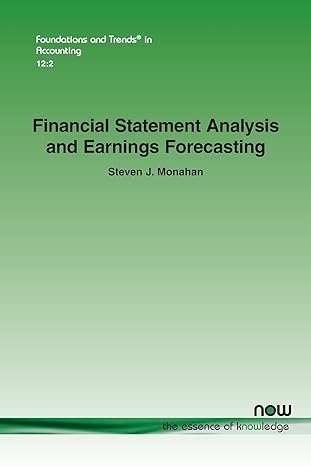Answered step by step
Verified Expert Solution
Question
1 Approved Answer
The Shirt Shop had the following transactions for T-shirts for Year 1, its first year of operations: Jan. 20 Purchased 310 units @ $ 7
The Shirt Shop had the following transactions for T-shirts for Year 1, its first year of operations:
| Jan. 20 | Purchased | 310 | units | @ | $ | 7 | = | $ | 2,170 | |
| Apr. 21 | Purchased | 150 | units | @ | $ | 9 | = | 1,350 | ||
| July 25 | Purchased | 210 | units | @ | $ | 10 | = | 2,100 | ||
| Sept. 19 | Purchased | 90 | units | @ | $ | 12 | = | 1,080 | ||
During the year, The Shirt Shop sold 560 T-shirts for $17 each.
Required
- Compute the amount of ending inventory The Shirt Shop would report on the balance sheet, assuming the following cost flow assumptions: (1) FIFO, (2) LIFO, and (3) weighted average.
- Compute the difference in gross margin between the FIFO and LIFO cost flow assumptions.
Compute the amount of ending inventory The Shirt Shop would report on the balance sheet, assuming the following cost flow assumptions: (1) FIFO, (2) LIFO, and (3) weighted average. (Round intermediate calculations to 2 decimal places and final answers to the nearest whole dollar amount.)
| Required A |
|
Compute the difference in gross margin between the FIFO and LIFO cost flow assumptions.
| Required B |
|
Step by Step Solution
There are 3 Steps involved in it
Step: 1

Get Instant Access to Expert-Tailored Solutions
See step-by-step solutions with expert insights and AI powered tools for academic success
Step: 2

Step: 3

Ace Your Homework with AI
Get the answers you need in no time with our AI-driven, step-by-step assistance
Get Started


